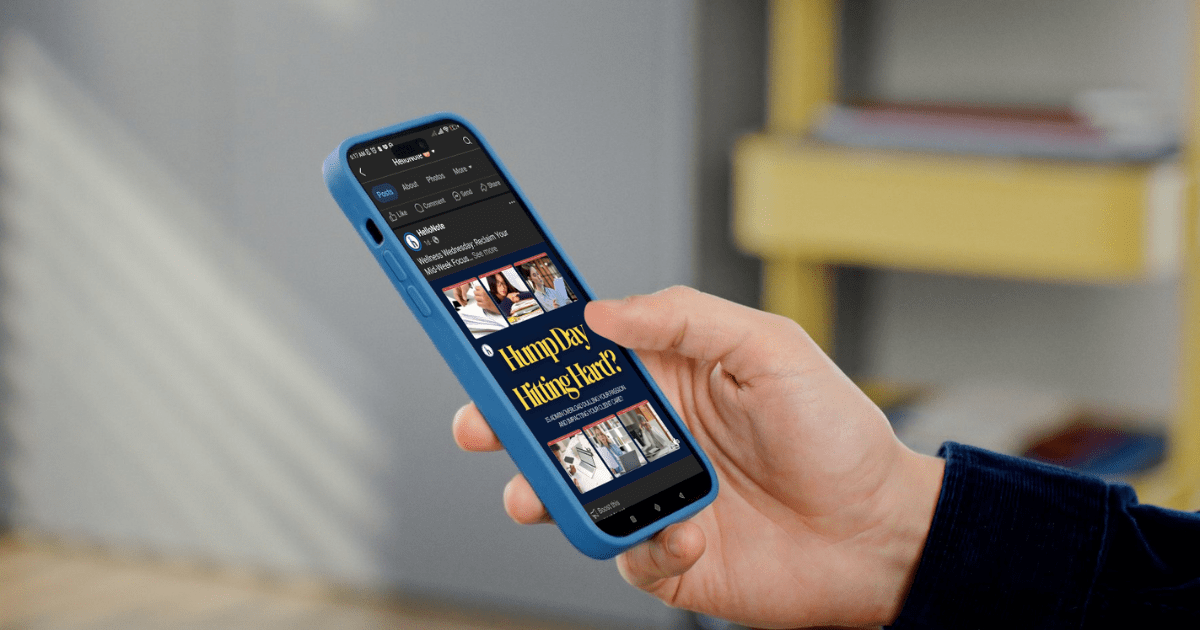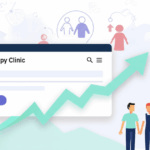
Introduction: Beyond the Clinic Walls
In today’s digitally connected world, the reach of your rehabilitation therapy practice extends far beyond the physical walls of your clinic. Patients and their families increasingly turn to online platforms not just for information, but for connection, support, and validation when seeking care. Among these platforms, Facebook remains a dominant force, offering a unique opportunity for Occupational Therapists (OTs), Physical Therapists (PTs), Speech-Language Pathologists (SLPs), clinic owners, and rehabilitation professionals to build trust, educate their communities, and strategically grow their practice online.
However, simply having a presence isn’t enough. Effective Facebook marketing for therapists requires a thoughtful approach—one grounded in providing genuine value, fostering community, adhering to ethical standards, and ultimately, connecting your outreach efforts to efficient practice management. This article explores how rehabilitation professionals can leverage Facebook pages, groups, and targeted advertising to strengthen their online presence, attract the right clients, and enhance their clinic’s success.
Why Facebook Matters Specifically for Rehabilitation Therapists
Unlike generic businesses, therapy practices thrive on trust and specialized knowledge. Facebook allows your rehabilitation therapist marketing efforts to truly resonate, enabling you to:
-
-
Educate Your Local Community: Share insights about specific conditions, treatment approaches, and preventative strategies relevant to your specialty (e.g., posture tips for remote workers from a PT, handwriting development activities from an OT, strategies for managing aphasia post-stroke from an SLP). This is key for patient engagement online.
-
Build Authority and Credibility: Consistently providing valuable, accurate information positions you and your clinic as trusted experts in your field, helping with building trust in therapy online.
-
Increase Visibility: Reach potential patients actively or passively searching for solutions you provide within their local area.
-
Counter Misinformation: Offer evidence-based perspectives in a space often filled with questionable health advice.
-
Support Existing Patients (Indirectly): Share general wellness tips, clinic updates, and resources that reinforce their therapeutic journey (while maintaining confidentiality).
-
Generate Referrals: Encourage satisfied clients (with permission) and community members to share your valuable content or recommend your page.
-
Laying the Groundwork: Your Professional Facebook Business Page
Think of your Facebook Business Page as your digital front door. It needs to be professional, informative, and welcoming. Effective clinic social media strategy starts here.
Optimizing Your Business Page for Impact:
-
-
Professional Branding: Use a high-quality logo for your profile picture and a compelling cover photo that reflects your clinic’s environment or mission (e.g., therapists working with patients, a welcoming clinic space, community imagery).
-
Comprehensive “About” Section: This is crucial for Facebook Business Page optimization. Include:
-
-
Your clinic’s mission and values.
-
Detailed descriptions of your services, clearly outlining specialties (e.g., “Pediatric Occupational Therapy specializing in sensory integration,” “Outpatient Physical Therapy for orthopedic and sports injuries,” “Speech Therapy for adults focusing on voice and swallowing disorders”).
-
Full contact information (address, phone number, website).
-
Clinic hours.
-
Insurance information (accepted plans or policy on verification).
-
-
-
Clear Call-to-Action (CTA) Button: Configure buttons like “Book Now” (linking to your scheduling system), “Call Now,” “Contact Us” (linking to a contact form), or “Learn More” (linking to your website’s services page).
-
Enable Messaging (Strategically): Allow potential clients to send private messages but set expectations for response times and clarify that specific medical advice cannot be given via message. Have a plan for who monitors and responds.
-
Pin Important Posts: Use the “Pin to Top” feature for crucial announcements, introductory videos, or posts highlighting your core services.
-
Encourage Reviews: Facebook reviews build social proof. Gently encourage satisfied patients (ethically and with consent if mentioning specifics) to leave feedback. Respond professionally to all reviews, positive or negative.
-
Content Strategy: Educate, Engage, Empower
Your content should provide value far more often than it directly sells. Mix up your formats to keep things interesting like the following. This approach is fundamental to successful physical therapy marketing Facebook campaigns.
-
-
Blog Post Sharing: Drive traffic to your website by sharing links to your in-depth blog articles.
-
Community Resources: Share links to reputable local health organizations or support groups relevant to your patient population.
-
Building Deeper Connections: The Power of Facebook Groups
While your Page broadcasts information, Facebook Groups create communities. A well-managed group can foster incredible loyalty and position your clinic as a central resource, enhancing your clinic social media strategy.
Using Groups Effectively and Ethically:
-
-
Niche Focus: Create private Facebook Groups for therapists centered around specific needs or interests relevant to your practice (e.g., “Local Support Network for Parents of Children with Sensory Processing Disorder,” “Managing Chronic Back Pain: Tips & Support,” “Stroke Recovery & Caregiver Connections [Your City]”).
-
Privacy is Key: Make groups private to encourage open (yet appropriate) sharing and create a safe space. Clearly vet membership requests.
-
Establish Clear Rules: Outline guidelines for respectful interaction, prohibit direct medical advice solicitation/provision, ban overt self-promotion from members, and state moderation policies.
-
Facilitate, Don’t Dominate: Your role is to guide discussion, share relevant (general) resources or articles, pose thoughtful questions, and perhaps host scheduled Q&A sessions or expert interviews (maybe with a nutritionist or physician).
-
Value-Driven Content: Share helpful tips, curated articles, and general advice applicable to the group’s theme, always reinforcing that it’s not a substitute for personalized therapy.
-
Strict Moderation: Actively monitor discussions to ensure rules are followed and the environment remains supportive and professional.
-
Groups build rapport and trust on a deeper level. Members may eventually become clients or strong advocates for your practice because they feel understood and supported, further solidifying your building trust in therapy online efforts.
Reaching Further: Strategic Facebook Advertising
Organic reach on Facebook can be limited. Paid advertising allows you to target specific demographics and interests, ensuring your message reaches potential clients actively seeking help to grow your therapy practice online. This is a critical component of Facebook marketing for therapists.
Key Elements of Effective Facebook Ads for Therapists:
-
-
Define Your Objective: What do you want people to do? (e.g., Visit your website, fill out a contact form, call the clinic, sign up for a free webinar/screening). Choose the corresponding Facebook Ad objective (Traffic, Leads, Engagement, etc.).
-
Precise Audience Targeting: This is where Facebook excels. For effective Facebook Ads targeting, target based on:
-
-
Location: Essential for local clinics (target specific zip codes, cities, or a radius around your practice).
-
Demographics: Age, gender (if relevant to your service).
-
Interests & Behaviors: Target interests related to conditions (e.g., “arthritis,” “back pain,” “running,” “parenting,” “special needs parenting”), but be cautious. Facebook restricts targeting based on specific health conditions. Focus on related interests and behaviors (e.g., people interested in “adaptive equipment” for OT, or “marathon training” for PT).
-
-
-
Compelling Ad Creative: For powerful Facebook ads for rehabilitation clinics:
-
-
Clear Headline: Address a pain point or highlight a benefit (e.g., “Relieve Back Pain & Improve Mobility,” “Help Your Child Thrive with Pediatric OT,” “Regain Confidence in Communication”).
-
Concise Text: Explain how you help and what makes your clinic unique. Focus on benefits, not just features.
-
Strong Visuals: Use high-quality photos or short videos (ideally featuring your clinic or therapists, if comfortable and professional). Avoid generic stock photos if possible.
-
Clear Call-to-Action: Match your objective (e.g., “Learn More,” “Book Your Consultation,” “Download Free Guide,” “Call Us Today”).
-
-
-
Landing Page Congruence: Ensure the page users land on after clicking the ad is relevant and makes it easy to take the next step.
-
Budget and Monitoring: Start with a small budget, track performance (clicks, leads, cost per lead), and adjust your targeting, creative, or budget based on results.
-
Examples of Rehab-Focused Facebook Ads:
-
-
-
Promote a free “Back Pain Prevention” or “Fall Prevention” workshop (online or in-person).
-
Offer a downloadable guide: “5 Exercises to Ease Shoulder Tension” (PT) or “Tips for Encouraging Early Language Skills” (SLP).
-
Advertise specialized programs: “Pediatric Feeding Therapy Evaluations Available,” “Post-Surgical Rehab Experts.”
-
Run awareness campaigns targeting specific local demographics.
-
-
Upholding Ethical Standards: The Non-Negotiables
Marketing on a public platform requires strict adherence to professional ethics and privacy regulations. Implementing ethical social media for therapists is paramount:
HIPAA Compliance:
-
-
Never share Protected Health Information (PHI). Avoid discussing specific patient cases, even anonymously, if details could potentially identify someone. Be cautious in direct messages; guide inquiries toward secure communication channels (phone, secure portal) for sensitive discussions.
-
Confidentiality:
-
-
Maintain strict patient confidentiality in all online interactions.
-
No Direct Medical Advice:ext Here
-
-
Use clear disclaimers stating that information provided is educational and not a substitute for a professional evaluation or personalized treatment plan. Avoid diagnosing or recommending specific treatments in posts, comments, or groups.
-
Testimonials:
-
-
If using testimonials, obtain explicit, written informed consent. Ensure they are truthful and not misleading. Be aware of regulations in your specific state regarding patient testimonials in advertising.
-
Professional Boundaries:
-
-
Maintain professionalism in all communications. Avoid friending current patients on personal profiles. Have a clear clinic social media policy for staff.
-
Truthful Advertising:
-
-
Ensure all claims about services and outcomes are accurate and evidence-based.
-
Adherence to healthcare marketing ethics builds lasting trust.
Bridging Marketing Success with Operational Efficiency: The HelloNote Advantage
Successful Facebook marketing for therapists—whether through engaging content, community building, or targeted ads—leads to increased inquiries, new patient leads, and ultimately, a busier schedule. Managing this influx efficiently is crucial to capitalize on your marketing investment and maintain a high standard of care. This is where a robust Electronic Medical Record system specifically designed for therapists, like HelloNote, becomes invaluable, serving as essential practice management software.
Imagine generating several promising leads from a Facebook ad campaign promoting pediatric OT evaluations. How do you ensure these potential clients are contacted promptly, scheduled efficiently, and onboarded smoothly?
Seamless Lead Capture & Management:
-
-
While leads might initiate contact via Facebook message or a linked website form, that information needs a central hub. HelloNote allows your administrative team to easily input and track these new leads, ensuring no potential patient falls through the cracks. You can even track the referral source (e.g., “Facebook Ad Campaign – Pediatric OT”) within HelloNote to measure your marketing ROI accurately. This is a key aspect of effective EMR lead management.
-
Streamlined Scheduling:
-
-
Once a lead converts, scheduling their initial evaluation is the next critical step. HelloNote’s integrated scheduling system simplifies finding available slots for the right therapist and service type, reducing back-and-forth communication and minimizing delays.
-
Efficient Intake Process:
-
-
Transitioning a lead to a patient involves paperwork. HelloNote offers customizable digital intake forms that can be sent to new patients ahead of their first appointment, saving valuable clinic time and ensuring therapists have necessary information readily available within the EMR before the session begins.
-
Organized Patient Records:
-
-
All information for patients acquired through your Facebook marketing efforts—from initial contact notes to evaluation reports and treatment plans—is stored securely and accessibly within HelloNote, providing a comprehensive patient overview.
-
Data-Driven Decisions:
-
-
By tracking referral sources within HelloNote, clinic owners and administrators can clearly see which Facebook marketing strategies (specific ads, content themes) are driving the most patient conversions, allowing for informed decisions about future marketing investments.
-
Essentially, HelloNote acts as the operational backbone that supports your marketing success. It ensures that the interest generated on platforms like Facebook translates into well-managed patient relationships and a smoother workflow for your entire team, freeing up therapists to focus on what they do best: providing excellent care.
Conclusion: Cultivating Growth Through Connection
Facebook offers rehabilitation therapists a dynamic platform to educate, engage, and expand their reach within the community. By establishing a professional Business Page, fostering supportive Group communities, utilizing targeted advertising strategically, and always adhering to strict ethical guidelines, you can build significant trust and attract clients who genuinely need your expertise. This comprehensive approach to social media strategy for OTs PTs SLPs is vital for practice growth.
However, effective marketing is only part of the equation. Integrating these outreach efforts with powerful practice management software like HelloNote ensures that growth is sustainable and manageable. By connecting your external communication with internal efficiency, you create a seamless experience for both potential clients and your dedicated team, paving the way for a thriving and impactful rehabilitation therapy practice.
Ready to Transform Your Clinic’s Efficiency?
Ready to streamline your practice operations and effectively manage the growth from your marketing efforts? Visit https://hellonote.wpengine.com/ or call us today to schedule a personalized demo!



















